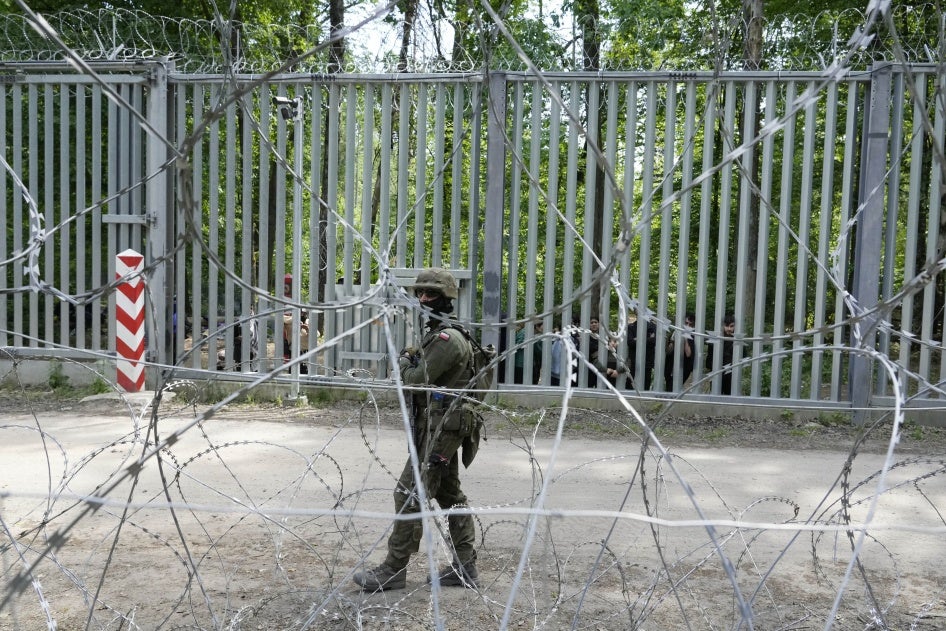Poland, Lithuania, and Latvia Turn Back 200,000 Illegal Migrants from Belarus
In a significant development regarding border security and immigration control, Poland, Lithuania, and Latvia have collectively turned back approximately 200,000 illegal migrants who attempted to cross into their territories from Belarus. This situation has escalated since the summer of 2021, when Belarus began to intentionally direct migrants towards the borders of European Union (EU) member states, using them as a means to exert political pressure on neighboring countries.
Key Details
The crisis began in earnest in August 2021, when the three Baltic states implemented a policy to immediately turn back illegal border crossers. This decision marked a pivotal moment in their approach to managing the influx of migrants. Since the policy"s introduction, Poland has reported halting a total of 135,810 illegal crossing attempts. Lithuania has intercepted 39,724 attempts, while Latvia has turned back 24,508 migrants. These figures highlight the scale of the challenge faced by these countries in maintaining their border security.
On a recent Sunday, specifically noted as November 1, 2025, authorities recorded an attempt by 58 individuals to cross the border; however, none were successful in their efforts. This incident underscores the ongoing attempts by migrants to enter these countries, despite the stringent measures in place.
The European Union has accused Belarus of conducting a hybrid attack aimed at destabilizing the region. This assertion is based on the belief that the Belarusian government is deliberately orchestrating the movement of migrants to create tension and challenge the EU"s border policies. The situation has drawn international attention, with various EU officials calling for a unified response to address the ongoing crisis.
Background
The use of migrants as a political tool by Belarus has been characterized as a strategy to retaliate against EU sanctions and to exert influence over its neighbors. The situation has evolved into a complex humanitarian and political crisis, with the EU and its member states grappling with the implications of increased migration flows and the need for effective border management. The response from Poland, Lithuania, and Latvia reflects a broader trend among EU countries to tighten their borders in response to perceived threats from irregular migration.

Image for Poland, Lithuania, and Latvia turn back 200,000 illegal migrants from Belarus
What"s Next
As the situation continues to unfold, the three Baltic states are likely to maintain their current policies aimed at deterring illegal crossings. The European Union may also consider additional measures to support these countries in their efforts to manage the influx of migrants. The ongoing tensions between the EU and Belarus could lead to further diplomatic actions, as well as discussions on how to address the root causes of migration in the region.
In light of these developments, the international community is closely monitoring the situation, with potential implications for broader migration policies and regional stability. The challenges posed by the Belarusian government"s actions may necessitate a reevaluation of the EU"s approach to border security and immigration, as well as its relations with neighboring countries.
For further insights into related coverage, see our article on recent developments regarding border security measures in other contexts.

![[Video] Federal officers deploy sting balls and flash grenades at Whipple Building](/_next/image?url=%2Fapi%2Fimage%2Fthumbnails%2Fthumbnail-1768340555229-vhfcc-thumbnail.jpg&w=3840&q=75)
![[Video] Crowd-control weapons used in Minneapolis as anti-ICE protesters attack police vehicle](/_next/image?url=%2Fapi%2Fimage%2Fthumbnails%2Fthumbnail-1768336302231-akxf7s-thumbnail.jpg&w=3840&q=75)

![[Video] Protests erupt in Minneapolis after ICE detains teenager, multiple arrests made](/_next/image?url=%2Fapi%2Fimage%2Fthumbnails%2Fthumbnail-1768331835371-z9ylqg-thumbnail.jpg&w=3840&q=75)


![[Video] Gunfire between Iraqi security forces and Sadr militias in Baghdad](/_next/image?url=%2Fapi%2Fimage%2Fthumbnails%2Fthumbnail-1768343508874-4redb-thumbnail.jpg&w=3840&q=75)
